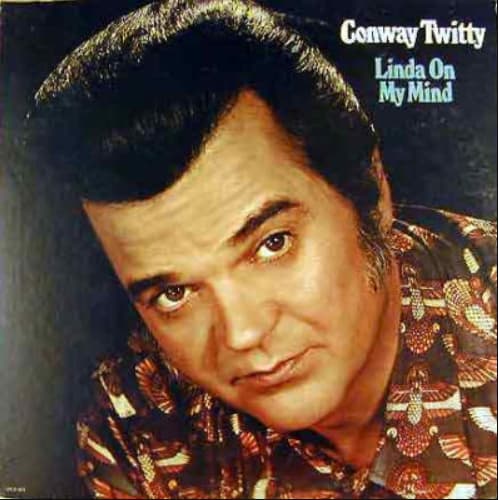
When a Love Triangle Becomes a Number One Hit
The profound heartache of being physically present but emotionally absent, trapped between a wedding ring and a ghost of a love.
Ah, the 1970s. What a time for country music. It was a golden age of tear-in-your-beer ballads and songs that could tell a whole life story in just a few short verses. And right in the heart of it all was Conway Twitty, the man with the unmistakable baritone and a remarkable ability to tap into the deepest recesses of the common man’s emotional life. His song, “Linda on My Mind,” is a quintessential example of this power, a track that, upon its release in January 1975, resonated so deeply it became Conway’s 12th number one hit on the U.S. country singles chart, spending a triumphant week in the top spot and a total of eight weeks charting.
The song was the title track and first single from the Linda on My Mind album, released the same year. It’s a beautifully painful narrative, one that many a mature listener of the time could relate to, perhaps more than they cared to admit. The music itself is pure 70s country gold, produced by the legendary Owen Bradley, featuring that smooth, well-crafted sound that characterized Nashville’s best of the era.
But it’s the story and the meaning that truly anchor this classic. “Linda on My Mind” is a raw, unflinching look at infidelity—not the brazen kind, but the quiet, devastating emotional kind. The protagonist is lying in bed with his wife, presumably the woman he is supposed to love, but his thoughts are consumed by another woman: Linda. The song’s power comes from the sheer juxtaposition of the physical and the emotional. He’s right there, “lying here with you, my darlin’,” and yet, in his mind, he is miles away, lost in the memory or fantasy of Linda.
The story behind the song is deceptively simple: Conway Twitty wrote the song himself, and the recording session took place much earlier, on June 19, 1973, at Bradley’s Barn in Mount Juliet, Tennessee. This personal touch, the fact that the legend himself penned the aching words, adds layers of authenticity to the narrative. It’s a universal tale of regret, of a choice made—the marriage vows—that hasn’t quelled the fire for the one that got away, or perhaps the one he knows he shouldn’t want.
For those of us who came of age during those years, this song is a visceral memory. It speaks to the complex, often messy, reality of adult relationships. It isn’t a song about a fleeting crush; it’s about a profound emotional attachment that threatens to undo the life he’s built. Every time Conway croons the line, “I want to be honest and tell you how much I care, but then a vision of Linda comes out of nowhere,” you can feel the ethical dilemma, the silent scream of a man trapped. It’s a haunting melody that makes you reflect on your own choices, the roads not taken, and the “Lindas” that sometimes linger, unbidden, at the edge of your mind. It’s country music at its most honest, turning a painful secret into a shared, cathartic experience, affirming that even the most solid lives can be undermined by the quiet power of a memory.